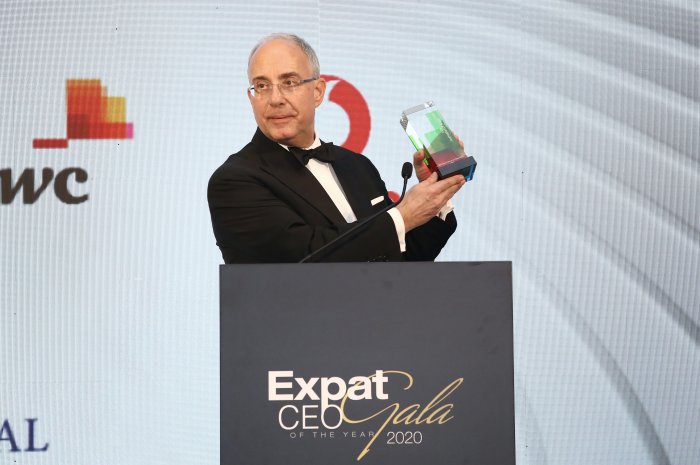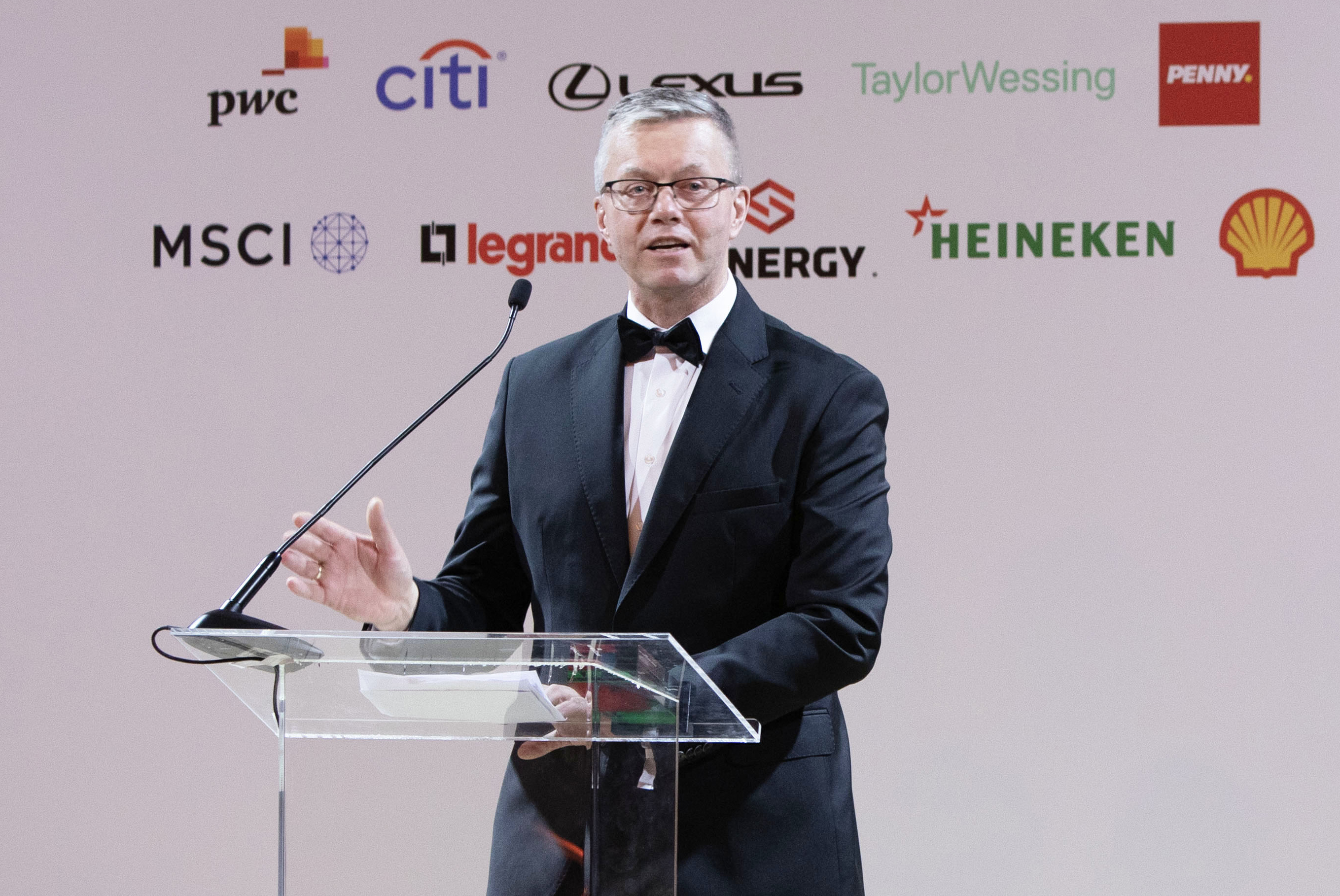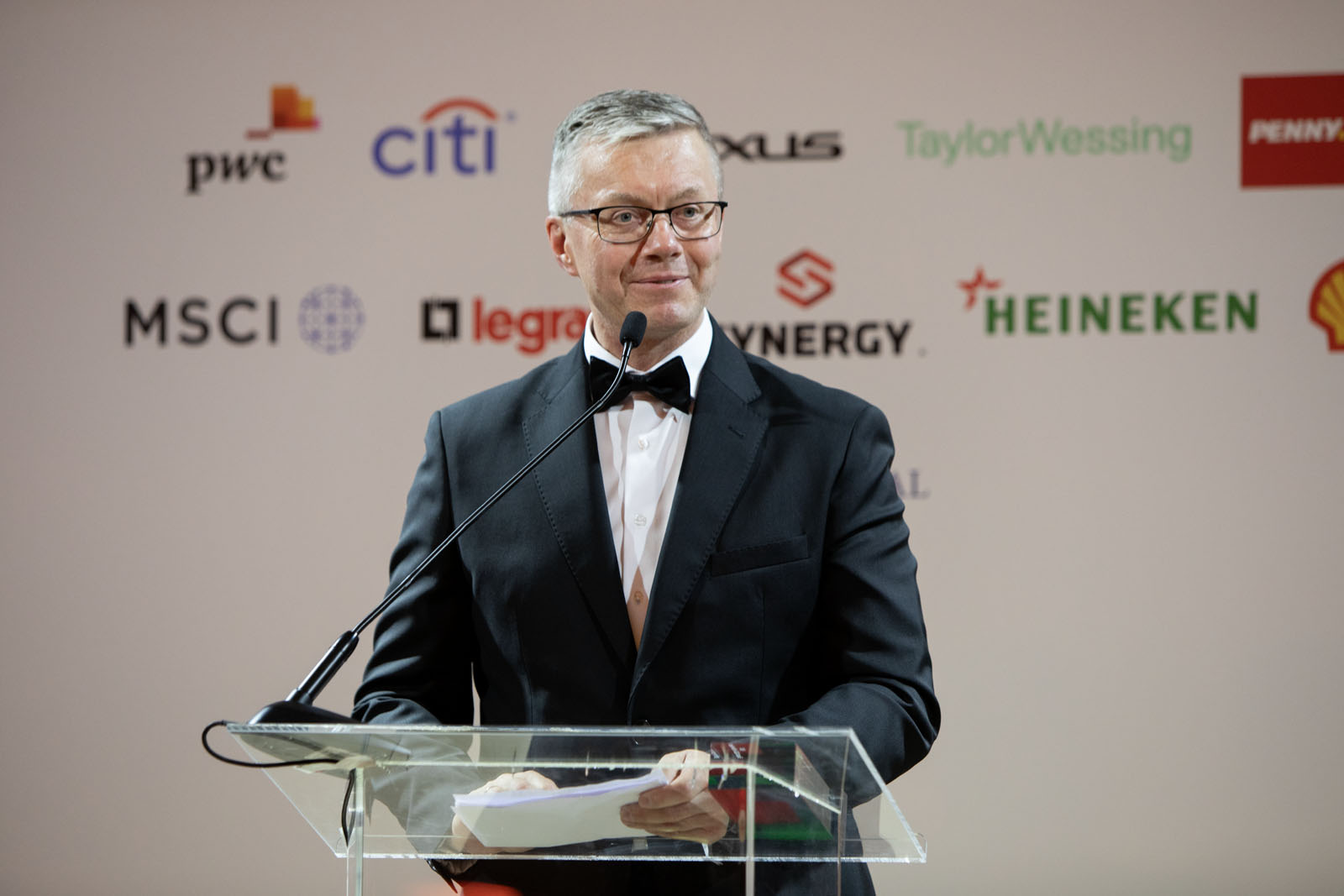Hard Work, Good Communication, Togetherness and Trust

Marianna Sárközy
A well-known figure in the business community, Dale A. Martin has a foot in many camps, and proved a popular winner of the HIPA Partnership Award at the BBJ Expat CEO of the Year gala. We asked the Siemens Hungary President-CEO to reflect on what that recognition means, both for him and his company.
Dale A. Martin. Photo by Marianna Sárközy.
BBJ: Congratulations on winning the Hungarian Investment Promotion Agency Partnership award for all you have done to promote investment in Hungary in partnership with HIPA. In your speech, you talked a lot about your colleagues at Siemens. Would it be fair to say this is at least in part, recognition for them, too?
Dale A. Martin: Yes, certainly; what a company achieves is always a joint achievement of the colleagues. This acknowledges the dedication and commitment of our 3,800 colleagues over the past many years, and I have the honor to represent them. Importantly, we should also thank our customers who challenge us and give us a valuable reason for being here in Hungary!
BBJ: Siemens has a long history of investing in Hungary. What keeps the company so engaged with this country?
DM: We have a long and rather proud history in Hungary, going back more than 130 years, starting with the first electric tram line in Budapest connecting Nyugati railway station with Oktogon in 1887 and the first metro on the continent in 1896. We have been actively present here ever since (with an intermission due to historical reasons), delivering and building infrastructure that was important and, I trust, valuable for the country’s development.
We continue to have a significant footprint with “two-and-a-half” factories: two rather traditional ones in manufacturing (turbine components and transformers) and Hungary’s largest software house, evosoft with more than 1,500 colleagues.
We also continue to invest successfully, as one can see at our turbine component plant in Késmárk utca, where a EUR 30 million expansion is now being followed by a roughly EUR 10 mln equipment upgrade.
We have regional centers of competence and colleagues who fly around the world, installing and commissioning wind and gas turbines, be that in Bolivia or Taiwan or somewhere in between. We proudly engaged in innovation with our electric aviation program, which was acquired by Rolls-Royce last September.
Last, but not least, we provide solutions and services in various fields, such as healthcare, electricity generation and distribution. Our “digital factory” division automates and digitalizes production, building automation optimizes heating and cooling, whilst mobility gets things moving, mainly rail-bound.
It is an exciting array of activities that would not be possible without our Hungarian colleagues who, with their commitment, creativity and ingenuity deliver excellent as well as reliable achievements.
BBJ: What would you say characterizes your leadership philosophy?
DM: I value diligence (in other words “hard work”) as well as quick, encouraging and honest communication. Getting things done together is the aim. The basis for this is a relationship based on mutual trust, with clearly aligned goals.
Having achieved this alignment – which is a never-ending, continuous process – we “only” need to challenge ourselves. Personally, I enjoy supporting our colleagues in reaching these goals and like to encourage them to “try, try and try again.” Perseverance is an important element to achieving tangible results and success that is valued by our customers. In the end, this is the yardstick, that our customers “feel good” about what we provide.
BBJ: Your family background is quite international, with Austrian and American connections, not to mention three Hungarian grandparents. You have had diverse international postings in your career, not least to Asia. What advantages would you say this mixed heritage gives you in adapting to the world around us?
DM: What I say about myself is that I am not entirely foreign but not really Hungarian, either. When you have had the chance to experience various cultures and backgrounds during your life and career, you might see more – or different – risks and opportunities than if you had only stayed in one place. You might also adapt to changes more quickly, as you have already experienced that things can be different. In addition, what you might experience in another country or culture can serve as an inspiration, enabling you to “copy with pride.”
BBJ: Both through Siemens and in your work leading the German-Hungarian Chamber of Industry and Commerce (DUIHK), you have got to know the Hungarian market very deeply. What do you think are its most urgent challenges and opportunities?
DM: Current economic policies rightly focus on boosting the added value of all economic activities within Hungary. A key challenge is to enable the local SME sector to become a pro-active part of international supply chains. That requires significant investments; into people, R&D, modern management methods and structures with a strategic focus.
Secondly, the business sphere and the state with all its sub-sectors must accelerate efforts to jointly master digital transformation. This is not only a question of hardware, but very much a question of mindset: establishing new business models, rethinking processes, raising openness to innovations.
Finally, we have to address the long-term trends of the labor market; we have to encourage and ascertain that lifelong learning becomes the basis of all educational efforts of individuals and also policy-wise, in order to have the capacities to react to fast structural and technological changes. Digitalization is an opportunity that Hungary has already taken steps to embrace. How and when this can be turned into a (not only short-term) opportunity will define the future.
BBJ: What is next for Siemens in Hungary?
DM: We are flexibly adapting ourselves to the market challenges, both geographically and strategically. Innovation, excellence and responsibility remain our key values, also here in Hungary.
By adapting our company structure to better meet customer requirements, we are making changes to our business set-up. Therefore our energy-generating entities will become a separate legal entity internationally. “Siemens Energy“ will come to life in Hungary as of March 1 and, together with 90 000 colleagues, will be spun off at the stock exchange this September.
BBJ: Is there anything else you would like to add?
DM: I would like, as a Hungarian phrase puts it, to say thank you three times plus one: To HIPA, for honoring my past with this award; to the companies and persons who encouraged me during my tenure as President of the German- Hungarian Chamber of Industry and Commerce, along with my colleagues at Siemens for having provided support and tangible results, allowing me to take some initiatives further; and, last but not least, on a more personal note, my three Hungarian grandparents – although they didn’t live in Hungary – for handing down their “Hungarian-ness” to their children and thus also to me.

Dale A. Martin (left) receiving his award from Róbert Ésik, CEO of HIPA.
SUPPORT THE BUDAPEST BUSINESS JOURNAL
Producing journalism that is worthy of the name is a costly business. For 27 years, the publishers, editors and reporters of the Budapest Business Journal have striven to bring you business news that works, information that you can trust, that is factual, accurate and presented without fear or favor.
Newspaper organizations across the globe have struggled to find a business model that allows them to continue to excel, without compromising their ability to perform. Most recently, some have experimented with the idea of involving their most important stakeholders, their readers.
We would like to offer that same opportunity to our readers. We would like to invite you to help us deliver the quality business journalism you require. Hit our Support the BBJ button and you can choose the how much and how often you send us your contributions.








